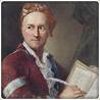
By:
James G. Apple, Editor-in-Chief, International Judicial Monitor and President, International Judicial Academy
At a time when international law has in some quarters not
only come into disrepute, but also whose very existence has been questioned, it
is useful to remind citizens of the United States as well as those who live
elsewhere in the world that the United States was founded on principles of
international law. The reminder should also include the fact that the “law of
nations” as it was called then, was a major influence on the so-called
“Founding Fathers” of the U.S., including especially those who signed the U.S.
Declaration of Independence in Philadelphia in 1776, and participated in the
drafting of the U.S. Constitution in that same city in 1787.
One of the most influential early writers on the subject of
the law of nations was a Swiss jurist and philosopher, Emmerich de Vattel
(whose name is also sometimes spelled as Emerich de Vattel). It is well
established that de Vattel’s seminal work, The Law of Nations or the
Principles of Natural Law Applied to the Conduct and to the Affairs of Nations
and of Sovereigns, had a significant influence in the drafting of both the
United States Declaration of Independence and the U.S. Constitution.
Emmerich de Vattel was born in Couvet in Neuchatel,
Switzerland in 1714, the son of a Protestant clergyman. De Vattel’s mother was
the daughter of a Swiss diplomat. De Vattel studied humanities at the University of Basel
where he was exposed to the writings of the German international jurist, Samuel
Pufendorf. Later he traveled to Geneva to pursue studies in theology and
metaphysics and was a student of another European international law jurist,
Jean-Jacques Burlamaque. Here he was again exposed to the principles of natural
law and the law of nations.
In 1740 and 1741 he wrote a series of essays, one of which
was a defense of the philosophy of Leibniz. After seeking and failing to secure
a diplomatic post, he moved to Dresden and then returned to Neuchatel and spent
three years writing and studying the works of yet another international jurist,
the German philosopher Christian Wolff. He later secured a diplomatic position
in Berne and entered the Saxon diplomatic service, where he eventually acted as
adviser and
minister-plenipotentiary. He was appointed Privy Councillor in 1758. It was
during this period of his life that he wrote and published his most famous
work, The Law of Nations, in 1757-1758. It was favorably and widely received
and established de Vattel as a “major authority on natural jurisprudence.”
In 1759 he secured a position in Dresden advising the
government of Saxony on foreign affairs. He wrote two additional works under
this appointment, one a critique of the works of Christian Wolff. In 1764, he
wed the daughter of a prominent Huguenot family, a marriage that produced one
son. However the challenges of the court appointment proved too great for him,
and he died in 1767 at the age of 53.
One commentary summed up the importance of The Law of
Nations thus:
The importance of The Law of Nations…resides
both in its systematic derivation of international law from natural
law and in its compelling synthesis of the modern discourse of
natural jurisprudence with the even newer language of political
economy. These features help to explain the continuing appeal of this text well into the
nineteenth century among politicians, international lawyers, and
political theorists of every complexion.

 International
Judicial Monitor
International
Judicial Monitor